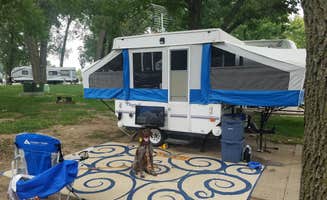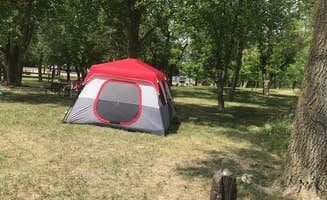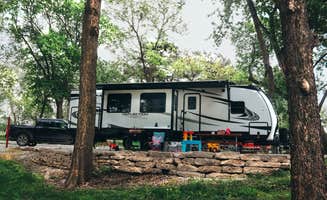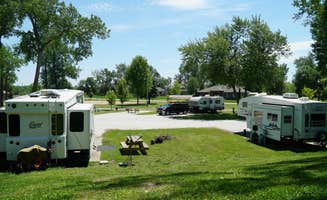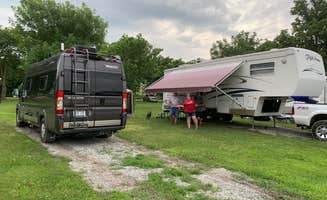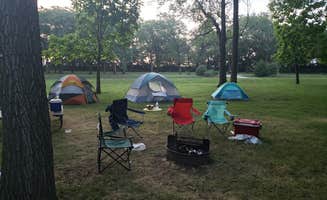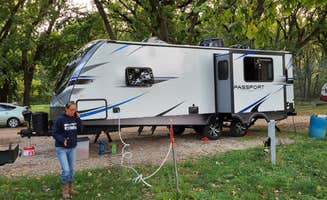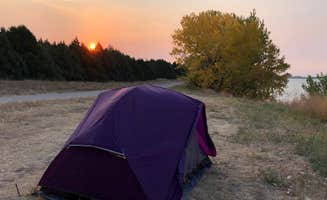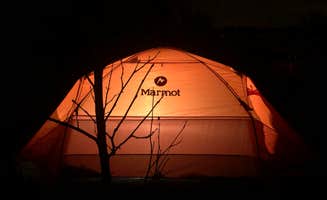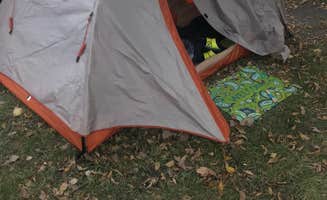Best Campgrounds in Nebraska
Nebraska's camping scene spans from established state parks to scenic lakeside areas. Eugene T. Mahoney State Park Campground offers year-round accommodations including tent sites, RV hookups, and cabin rentals, while Platte River State Park provides additional options with yurts and glamping facilities. Branched Oak Lake State Recreation Area features tent and RV sites with primitive to full-hookup options across multiple campgrounds. The region includes several KOA locations with family-friendly amenities and a range of state recreation areas with waterfront access.
Most Nebraska campgrounds provide electric hookups, drinking water, and fire rings, though availability varies seasonally. "Most sites have laundry and showers, but some parks lock bathrooms in the off-season," noted one camper. Lake Wanahoo State Recreation Area and other locations maintain shower facilities and dump stations for RVs. Winter camping remains available at select locations including Camp A Way and West Omaha KOA Holiday, which operate year-round. During summer, temperatures can reach into the 90s°F, making water access particularly valuable. Many state recreation areas require park permits, and developed campgrounds typically charge $20-65 per night depending on hookup level and season.
State park campgrounds receive consistently high ratings for cleanliness and maintenance. Campers particularly appreciate Louisville State Recreation Area and Fort Kearny State Recreation Area for their accessibility and well-maintained grounds. Based on reviews from The Dyrt, visitors value the peaceful settings at lakeside campgrounds like Lake Ogallala State Recreation Area, which offers boat-in camping options. Urban-adjacent options such as Camp A Way Campground in Lincoln provide convenient access to city amenities while maintaining a camping atmosphere. One visitor mentioned that "Maskenthine Lake Recreation Area is one of our favorites with clean restrooms and showers, plus great trails for hiking or mountain biking." Train noise affects some campgrounds near rail lines, particularly those in smaller towns that offer municipal camping areas.


